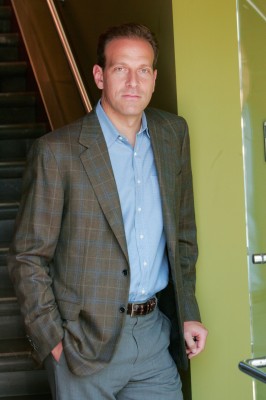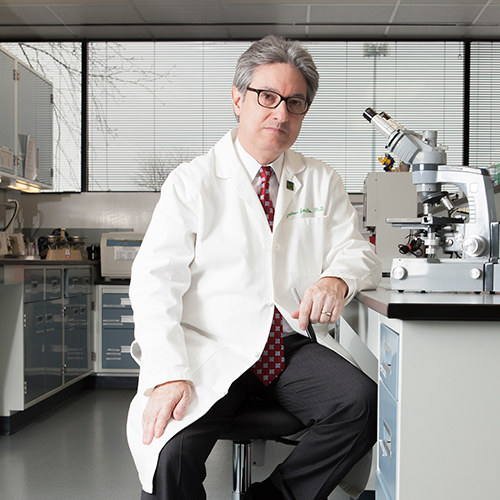In 1999, Arturo Sneider founded Primestor Development to fill a gap he noticed in the Los Angeles (LA) market. You could drive around Hispanic neighborhoods all day without seeing a golden arch or big red bull’s-eye. “There were no brand names,” he told Real Estate Forum in 2011 because, “no one thought there was [Hispanic] purchasing power.” No one but Sneider and Primestor cofounder, Leandro Tyberg. Fifteen years and one recession later, Primestor is still ahead of the curve but with a mountain of evidence supporting its business case for retail development in underserved Hispanic communities. HE caught up with Sneider to talk about developing post-recession and in the midst of LA’s urban renewal.
What does the underserved Hispanic market look like today compared to when you began Primestor in the ‘90s?

We understand the third- or fourth-generation millennial customer and how acculturated, assimilated, and aspirational they are. For example, we’re doing a deal with Chipotle in a predominantly Mexican community in Los Angeles. We’ve been able to identify a huge demand for that product among young Latinos. At the same time, we’re seeing that people want more organic growth, and that only comes from belief in the support system in place. We’re creating opportunities for incubator businesses on a bigger scale than we have before. Seeing great success in sales speaks volumes about our customers.
How did the recession affect your business model, and did you have to shift your strategy to adapt?
We had a lot of momentum going into that period, barely having scratched the surface of providing the capital and services badly needed in underserved areas. But the recession caused two things to happen: tenants went back to the tried-and-true market, and capital followed that. During the core of the downturn, we realized we had to prepare for a long recession, slow return of capital, and very conservative development. So we went out and raised our own funds. We felt we needed a lot more equity in our deals, which was a significant departure from our original strategy of self-funding and stretching the equity with debt and institutional partners. Now we’re controlling our own destiny by having our own equity.
It sounds like you actually came out stronger. How are you using your new autonomy to be a leader in your industry?
Part of our service to the industry is bringing retailers to the area whether they’re our tenants or not. We went on a tear educating retailers with lessons we had learned and applied those lessons to existing and new tenants. It’s quite different to go to the market with examples of success rather than demographics and trends, which we used before. We have and we are learning what the customer expectation is in terms of bilingual staff and signage, the kind of merchandise, and the quality of stores. We’re finding the balance with our architecture, design, tenants, and their price points to fall between gentrification and stores whose quality isn’t high enough.
How is Primestor reacting to the infill movement catching on in LA with urban sprawl having reaching its limits?
LA has an obvious need to densify with vertical projects. As we begin to rethink how we engage with our city, it must include public transportation and more livable communities with everything in walking distance. We need local developers who understand the neighborhoods to invest locally as well as national retailers to break their prototypes (single-story stores with huge parking lots) and go into markets where they haven’t before. And we need to incentivize retailers to participate. That’s still a stretch. It’s obviously going to have to change because land here is too expensive and scarce. For right now, in most of the lower- and mid-income communities, it’s utterly frustrating.
What has been the larger implication of investing in underserved and Hispanic markets? What have you heard from community leaders about the impact?
“Developer” is a word we inherited before we knew what we’d become, but what we really are is a facilitator. By far, the biggest impact we have is demonstrating belief, trust, and appreciation in neighborhoods. Our tenants create jobs, which helps tremendously with transportation issues. Most of our centers have banks within them. We’re putting in gyms, facilitating the potential to improve community health. But most importantly, we’re giving people the sense that someone believes in their community as much as, or more than, they do.
Another part of our goal that we’re proud of is self-imposed local hiring. Even when cities or jurisdictions don’t mandate it, we do it as a requirement of ourselves and contractually commit to doing so. We believe completely in empowerment within our own neighborhoods.
What’s next for Primestor?
People have come to us with underperforming assets, which on occasion we have invested in. When they’re sizable enough, advance our strategy, and share our vision, we’ll provide property management. We’re also growing in Arizona, Nevada, Colorado, and California. We are aggressively looking to acquire existing properties that need repositioning or improvement. We’re also developing from the ground up.

